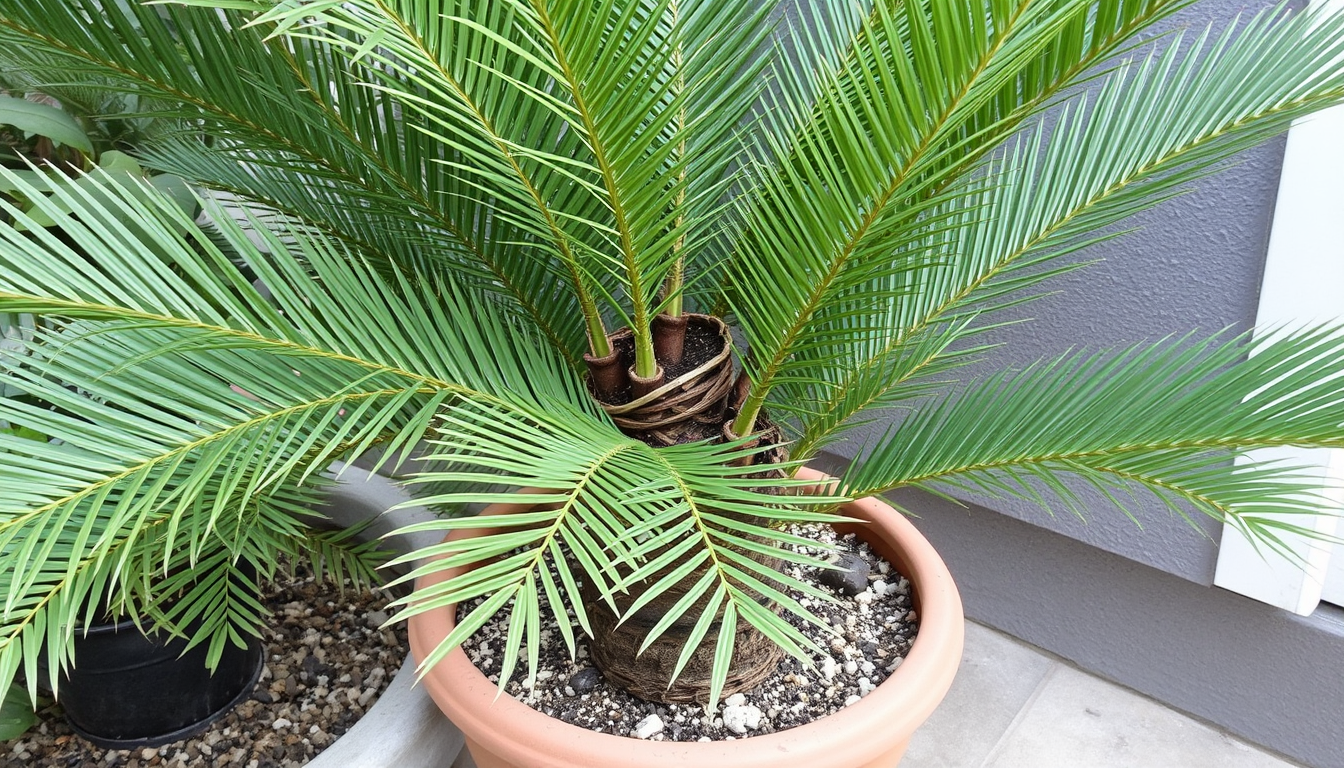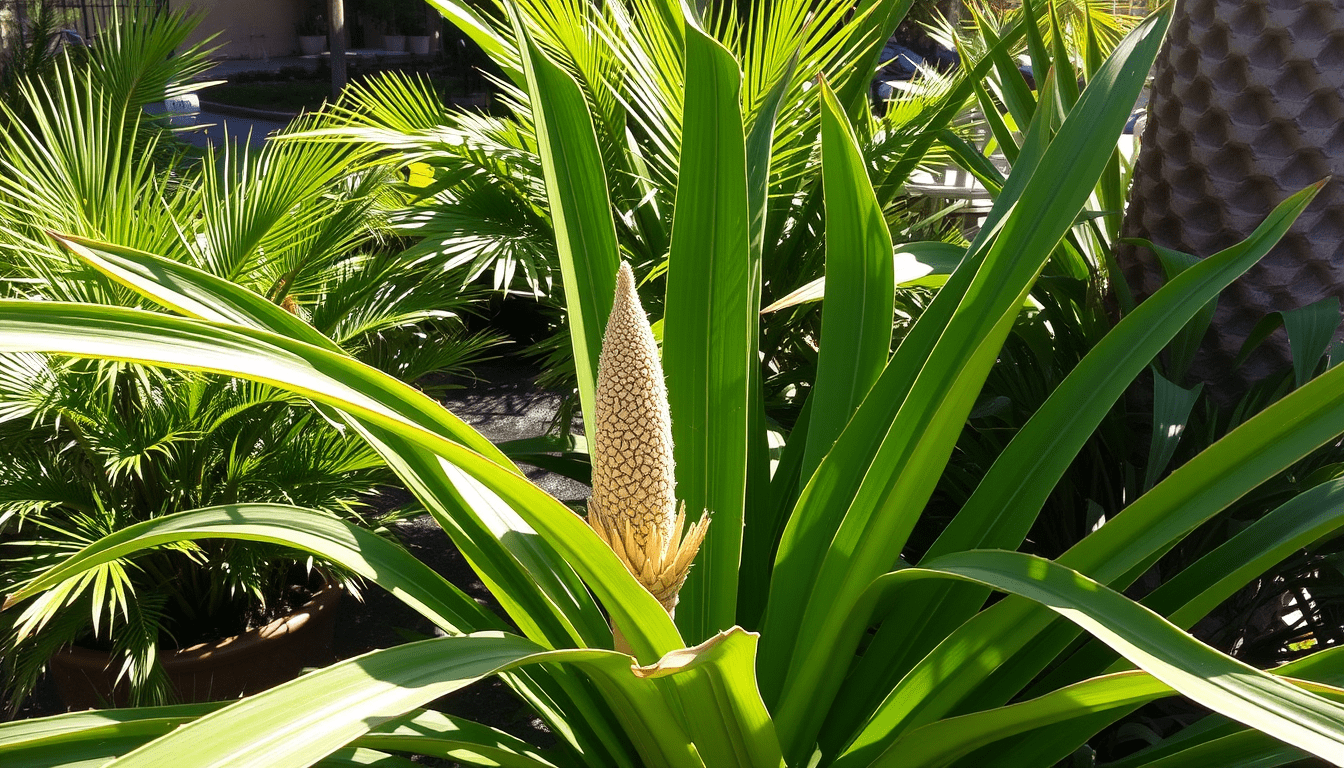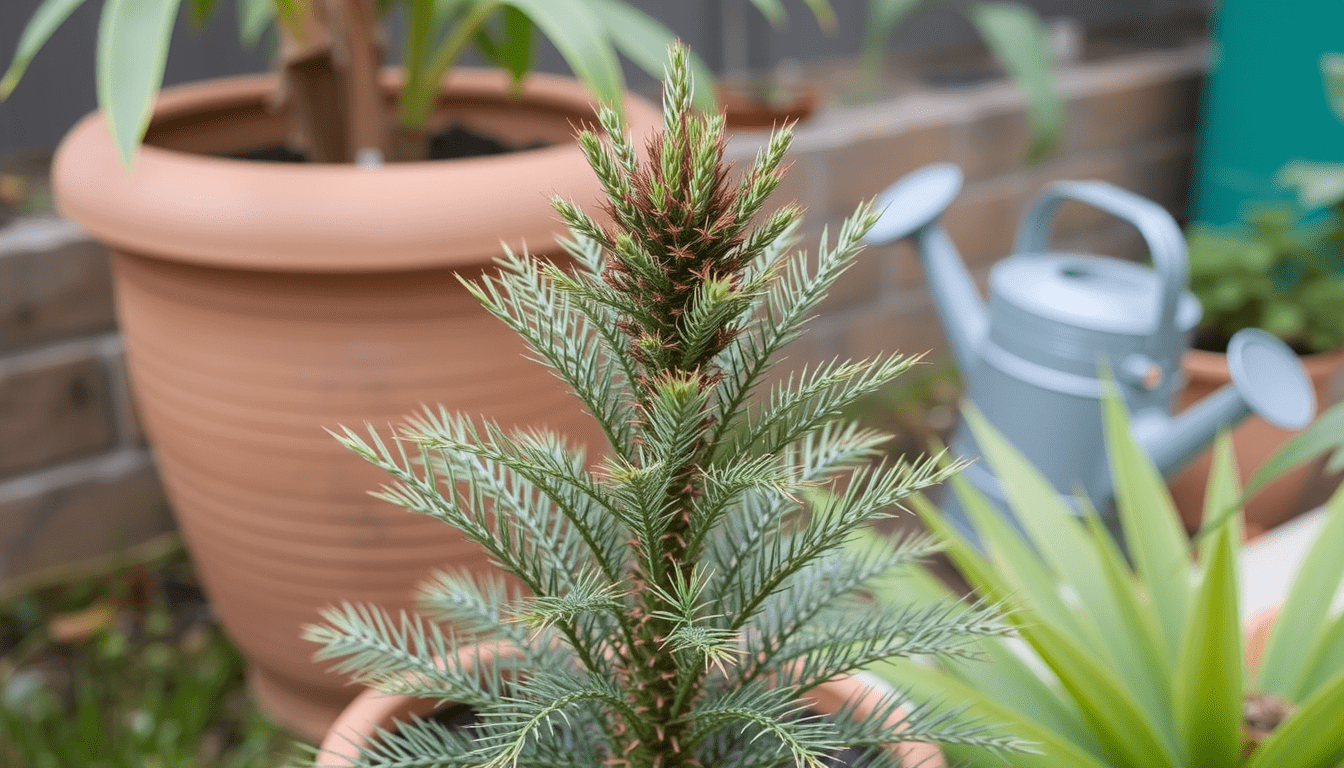🌿 Discover the Perfect Plants for Your Space! 🌿
Explore our handpicked collection of cycads, aloes, seeds, and more to transform your garden or landscape.
Understanding Cycad Varieties
Stepping into the world of cycads is like stepping back in time. These ancient plants, often referred to as “living fossils,” have graced our planet for millions of years, even predating dinosaurs! Their unique, prehistoric appearance adds a touch of drama and elegance to any Perth home, but with a vast array of cycad varieties available, choosing the right one can feel a bit like navigating a Jurassic jungle. Understanding the key differences between these fascinating plants is the first step towards creating a thriving cycad haven in your garden.
Cycads are broadly categorized into three families: Cycadaceae, Stangeriaceae, and Zamiaceae. The Cycadaceae family, containing the iconic Cycas revoluta or Sago Palm, is a popular choice for home gardens due to its hardiness and striking symmetrical form. The Stangeriaceae family, with its fern-like foliage, offers a softer, more textured look. Finally, the Zamiaceae family boasts the greatest diversity, with genera like Encephalartos, Dioon, and Zamia, each exhibiting unique leaf shapes, sizes, and growth habits. Considering the specific characteristics of each family will help you narrow down the options and select a cycad that best suits your aesthetic preferences.
Beyond the family level, exploring individual species and cultivars opens up a world of possibilities. From the vibrant blue hues of the Ceratozamia mexicana to the imposing stature of the Encephalartos woodii, the variety in color, texture, and size is truly remarkable. Some cycads are low-growing and compact, perfect for smaller gardens or container planting, while others can reach impressive heights, becoming majestic focal points in a larger landscape. Researching the mature size and growth rate of different cycad varieties is essential for ensuring a harmonious fit within your Perth home garden.
Considering Perth’s Climate
Perth’s Mediterranean climate, characterized by hot, dry summers and mild, wet winters, presents a unique set of considerations when choosing the right cycad for your home. While cycads are generally known for their resilience, understanding how Perth’s specific climate conditions can impact their growth and health is crucial for long-term success. The intense summer heat, coupled with low rainfall, can be particularly challenging for some cycad varieties, making drought tolerance a key factor in your selection process.
Many cycads thrive in full sun, a characteristic well-suited to Perth’s abundant sunshine. However, younger plants or those recently transplanted may benefit from some protection during the hottest part of the day to prevent sunburn. Sun-tolerant cycad varieties like Encephalartos and some Zamia species are particularly well-suited to Perth’s climate. However, even these hardy species appreciate well-drained soil to prevent root rot during the wetter winter months. Perth’s sandy soils generally provide good drainage, but amending heavy clay soils with organic matter can improve drainage and create a more hospitable environment for your cycads.
Winter in Perth, while mild, can still pose challenges for some cycads. Frost-sensitive species, such as certain Cycas and Bowenia varieties, may require protection during colder periods. Positioning these cycads in sheltered locations, such as against a north-facing wall or under the canopy of larger trees, can help mitigate the effects of frost. Alternatively, consider selecting more cold-hardy cycads like Macrozamia, which are native to Australia and well-adapted to cooler temperatures. By carefully considering Perth’s unique climate conditions, you can choose cycads that will not only survive but truly thrive in your Perth home garden.
Assessing Your Garden Space
Before you bring home that majestic Encephalartos or delicate Zamia, take a moment to assess your Perth garden space. Cycads, while adaptable, have specific needs that must be met to ensure their long-term health and vitality. Understanding the available space, light conditions, and soil type will help you choose a cycad that not only fits but flourishes in its new home. Think of it as finding the perfect piece of furniture – you wouldn’t cram a grand piano into a tiny apartment, would you?
Begin by evaluating the size of your garden. Large cycads, like some Macrozamia species, can reach impressive heights and widths, requiring ample space to spread their magnificent fronds. Smaller gardens or courtyards might be better suited to dwarf cycads or those with a more compact growth habit. Consider the mature size of the cycad you’re interested in and ensure you have enough space to accommodate its growth without overcrowding other plants. Remember, these ancient plants can live for decades, even centuries, so planning for their future size is essential.
Next, observe the light conditions in your garden. While many cycads thrive in full sun, some prefer partial shade, especially during the hottest part of the day in Perth. Identify areas that receive direct sunlight, dappled shade, or full shade, and choose a cycad that matches the light conditions of your chosen location. For example, a sun-loving Encephalartos would be happy basking in a sunny spot, while a shade-tolerant Bowenia might prefer a more sheltered position under a tree canopy.
Finally, consider your soil type. Cycads prefer well-drained soil, which is essential for preventing root rot, especially during Perth’s wet winters. If your garden has heavy clay soil, amend it with organic matter, such as compost or well-rotted manure, to improve drainage and create a more hospitable environment for your cycads. Alternatively, consider raised garden beds or container planting, which allows you to create the ideal soil mix for optimal cycad growth. By carefully assessing your garden space and understanding your cycad’s needs, you can create a thriving cycad haven that will enhance the beauty of your Perth home for years to come.
Choosing the Right Size and Shape
Now that you’ve assessed your Perth garden space and considered the local climate, it’s time for the fun part: choosing the perfect cycad size and shape to complement your home. Cycads come in a dazzling array of shapes and sizes, from low-growing groundcovers to towering specimens that resemble miniature palm trees. Selecting the right size and shape is crucial for creating a balanced and aesthetically pleasing landscape. Imagine trying to squeeze a giant Lepidozamia peroffskyana into a small courtyard – it would be like trying to fit an elephant into a bathtub!
For smaller gardens or courtyards, dwarf cycads like Zamia fischeri or Cycas revoluta ‘Dwarf’ are excellent choices. These compact beauties won’t overwhelm the space and can even thrive in containers, adding a touch of prehistoric charm to patios and balconies. If you have a larger garden, you have more options, from medium-sized cycads like Dioon edule to majestic giants like Encephalartos princeps. Consider the scale of your garden and choose a cycad that complements the existing landscape features. A towering cycad can serve as a dramatic focal point, while a cluster of smaller cycads can create a lush, textured understory.
Beyond size, the shape of the cycad also plays a significant role in its overall aesthetic impact. Some cycads have a symmetrical, upright form, like the classic Cycas revoluta, while others boast a more sprawling, irregular shape. Consider the desired look and feel of your garden. A formal garden might benefit from the structured elegance of a symmetrical cycad, while a more naturalistic landscape might be enhanced by the free-flowing form of a multi-headed Encephalartos. Think about how the cycad’s shape will interact with other plants and features in your garden, creating a harmonious and visually appealing composition. By carefully considering both size and shape, you can choose a cycad that perfectly complements your Perth home and garden, adding a touch of ancient beauty to your outdoor space.
Caring for Your Cycad
Once you’ve chosen the perfect cycad for your Perth home, the next step is to provide it with the proper care to ensure its long-term health and vitality. These ancient plants, while remarkably resilient, do have specific needs that must be met to thrive in Perth’s unique climate. Think of it as welcoming a distinguished guest into your home – you want to make sure they feel comfortable and well-cared for, right?
One of the most important aspects of cycad care is watering. While cycads are drought-tolerant, they still need regular watering, especially during Perth’s hot, dry summers. Water deeply but infrequently, allowing the soil to dry out slightly between waterings. Avoid overwatering, as this can lead to root rot, a common problem in Perth’s heavier clay soils. A good rule of thumb is to water deeply once a week during summer and less frequently during winter. Observe the soil moisture and adjust your watering schedule accordingly, ensuring the soil doesn’t become completely dry or waterlogged.
Another key element of cycad care is fertilizing. Cycads are slow growers and don’t require heavy feeding. A light application of a balanced, slow-release fertilizer in spring and autumn is usually sufficient. Avoid high-nitrogen fertilizers, as these can promote excessive leaf growth at the expense of root development. Choose a fertilizer specifically formulated for cycads or palms, or opt for a balanced granular fertilizer with a low nitrogen content. Remember, less is more when it comes to fertilizing cycads – over-fertilizing can do more harm than good.
Finally, pruning plays a role in maintaining the health and appearance of your cycads. Remove any dead or yellowing leaves to prevent the spread of diseases and improve air circulation around the plant. Be careful when pruning, as cycads are slow to recover from excessive pruning. Use sharp, clean pruning shears and avoid cutting into the trunk or crown of the plant. Regularly removing old leaves not only improves the cycad’s appearance but also encourages new growth, keeping your cycad looking its best in your Perth garden.
Pest and Disease Management
While cycads are generally tough and resilient, they aren’t entirely immune to pests and diseases, especially in the Perth home garden. Keeping a watchful eye and understanding the common culprits can help you protect your prized cycads and ensure they remain healthy and vibrant for years to come. Think of it as being a vigilant guardian, protecting your ancient treasures from unwanted invaders.
One common pest that plagues Perth cycads is the scale insect. These tiny, sap-sucking insects can weaken the plant and cause yellowing leaves. Regularly inspect your cycads for signs of scale, which appear as small, brown or white bumps on the leaves and stems. If you spot an infestation, treat it promptly with a horticultural oil or insecticidal soap, following the product instructions carefully. Early detection and treatment are key to preventing scale infestations from becoming a major problem.
Another pest to watch out for is the mealybug, a close relative of the scale insect. Mealybugs are soft-bodied insects covered in a white, waxy coating. They also feed on plant sap, causing similar damage to scale. Treat mealybug infestations with the same methods used for scale, ensuring thorough coverage of the affected areas. For persistent infestations, consider using a systemic insecticide, which is absorbed by the plant and provides longer-lasting protection.
In addition to pests, cycads can also be susceptible to fungal diseases, particularly in Perth’s humid winter months. Root rot, caused by excessive moisture in the soil, is a common problem. Ensure your cycads are planted in well-drained soil and avoid overwatering to prevent root rot. If you suspect root rot, remove the affected plant and inspect the roots. If the roots are mushy and discolored, the plant may be beyond saving. However, if the damage is limited, you can try repotting the cycad in fresh, well-drained soil and reducing watering frequency.
By understanding the common pests and diseases that can affect cycads in Perth and taking preventative measures, you can protect your investment and ensure these ancient plants continue to thrive in your home garden. Regular inspection, prompt treatment, and proper care are the keys to maintaining healthy, vibrant cycads that will grace your Perth home for generations to come.
🌿 Discover the Perfect Plants for Your Space! 🌿
Explore our handpicked collection of cycads, aloes, seeds, and more to transform your garden or landscape.



